
SkillDing -Learn by Doing
By SkillDing - Learn by Doing

SkillDing -Learn by DoingNov 08, 2019

High Performance Habits
In this episode we take a deep dive with Aoife O'Brien, host of Happier at Work podcast, into Brendon Burchard's "High Performance Habits." Uncover the secrets behind all six habits that pave the way for personal and professional excellence.
Seek Clarity: High performers have a clear vision for their future and a strong understanding of their values and goals. They are able to make decisions that are aligned with their vision and goals, and they are not easily distracted by fleeting opportunities or setbacks.
Generate Energy: High performers have high levels of physical and mental energy. They are able to sustain their energy levels throughout the day, and they are able to push themselves through periods of challenge and adversity.
Raise Necessity: High performers believe that it is their responsibility to create their own success. They do not wait for opportunities to come to them; they actively seek out opportunities and create their own circumstances.
Increase Productivity: High performers are able to get things done. They are focused and efficient, and they are able to prioritize their tasks and manage their time effectively.
Develop Influence: High performers are able to connect with others and build relationships. They are able to persuade and inspire others, and they are able to build strong teams.
Demonstrate Courage: High performers are not afraid of taking risks. They are willing to step outside of their comfort zones and try new things, even if they are afraid of failure.

Tuesdays with Morrie
In this episode we talk to Graham Owens about the book "Tuesdays with Morrie". A memoir by Mitch Albom that tells the story of the author's former college professor, Morrie Schwartz, who is dying from ALS (also known as Lou Gehrig's disease). The book is divided into fourteen chapters, each covering a different topic of discussion between Mitch and Morrie.
Throughout the book, Morrie shares his wisdom on topics such as love, forgiveness, death, and the meaning of life. He emphasizes the importance of human connection and encourages readers to focus on the things that truly matter in life, rather than getting caught up in material possessions or social status.
Some of the most actionable content in the book includes:
- Prioritize meaningful relationships: Morrie emphasizes the importance of nurturing relationships with loved ones and making time for them, even in the midst of a busy life.
- Cultivate a sense of gratitude: Morrie encourages readers to appreciate the simple things in life and to find joy in the present moment, rather than constantly striving for more.
- Face your fears: Morrie advises readers to confront their fears and not let them hold them back from living a full and meaningful life.
- Embrace vulnerability: Morrie shares his belief that vulnerability is a key aspect of human connection, and encourages readers to be open and honest with those around them.
- Live with purpose: Morrie encourages readers to find their own sense of purpose and to live each day with intention and meaning.
About SkillDing.com
You and I listen to podcasts for many reasons and listening to a podcast like this probably means you are looking to get insights about human psychology, motivation, persuasion, things like that. If you are here to learn, listening is not enough. In fact, that will get you ⅓ of the way there. You will understand the topic, that's the first part. The second part is to remember the most actionable content when you need it, what we call the moment of truth. And thirdly you need to find opportunities to deliberately practice and reflect on that practice. This episode has a suite of learning tools that you can use to help you do this. Just go to SkillDing.com and search for the title of this episode.

Talking Heads by Shane O'Mara
Shane O'Mara on Substack: Brain Pizza
Get the book: here
We are social animals and talking is part of what makes us human.
But what purpose does conversation serve? In this revelatory tour of talking, neuroscientist Shane O'Mara explores why we communicate, what happens in our brains when we do it, and what it means for us as individuals, groups and societies.
How do our thoughts, memories, and conversations change our brains? What does it mean that we spend most of our thinking lives in a five-minute bubble around the present moment? Why does our sense of self solidify with age, even as we grow more forgetful? In what ways do we imagine futures together? And how do our nations begin as conversations?
Moving from the personal to the social and ultimately towards a radical new perspective on the defining phenomenon of our times, populist nationalism, this is the story of how conversation builds the worlds around us - and how, together, we can talk our way into a better tomorrow.

Mike Greene - Failure Breeds Success
Every now and again you record an episode and completely forget that you are doing doing a podcast. You are so absorbed in what the guest is saying that it becomes a free lesson in life. This is one such episode.
A lot of people talk about how to be successful in your chosen arena. The sad truth is that sometimes these people are good at talking and not so good at delivering results.
That is not Mike Greene. He is the host of his own podcast 'Success is a System' and a Podcast Partner of ours here at SkillDing.com.
He wrote a book called Failure Breeds Success and he has lived every single one of the lessons in the book. In this episode we hear about how he went from being homeless at 4 years old to being a multimillionaire today.
My advice is to listen to every word Mike says.

Selling through Partnership Skills
The world of business is in constant change and the world of sales is evolving to keep up.
From the days of the power close through to solution and insight selling serious sales professionals constantly seek ways to improve. The modern sales person has a host of sales models to help them which this book sorts into Classic, Consultative, Value-Based and Enterprise selling.
Partnering Intelligence or ‘PQ’ is a means of understanding competence in using the system of behaviours that creates healthy, thriving relationships. Partnering skills can be measured and learned. Combine these with defined processes for implementing and guiding sales, and you have a repeatable formula for success.
Selling Through Partnering Skills uses the innovative VALUE Framework to bring these key elements together. In doing so it helps build the skillset required in today’s commercial environment. With an improved mindset and associated techniques sales people are now able to engage customers with a new finesse that can drive longer, stronger relationships.
About SkillDing.com
You and I listen to podcasts for many reasons and listening to a podcast like this probably means you are looking to get insights about human psychology, motivation, persuasion, things like that. If you are here to learn, listening is not enough. In fact, that will get you ⅓ of the way there. You will understand the topic, that's the first part. The second part is to remember the most actionable content when you need it, what we call the moment of truth. And thirdly you need to find opportunities to deliberately practice and reflect on that practice. This episode has a suite of learning tools that you can use to help you do this. Just go to SkillDing.com and search for the title of this episode.

How Confidence Works
We are talking to Professor Ian Robertson author of several books; 'The Stress Test', 'The Winner effect', 'The Mind's Eye' and 'Mind Sculpture'. In this episode we discuss his newest book 'How Confidence Works'. Steven Pinker called this book 'Interesting and Important'. Former Irish President Mary Robinson said it is 'A revelatory and practical new exploration of the science of confidence, which is important for everyone but crucial for women.'

Talk like TED
In this episode we talk with Ben Belazi about the book "Talk Like TED". This book analyses some of the most successful TED talks to provide insights into the art of public speaking. The author, communication coach Carmine Gallo, emphasizes the importance of storytelling, authenticity, and passion in delivering a memorable presentation. He also highlights the significance of delivering a clear message, using visuals effectively, and engaging the audience through humour and emotional appeals.
The book breaks down the elements of a great TED talk into three main components: emotional connection, novel information, and memorable delivery. Here are some of the most actionable tips from each component:
- Emotional Connection
- Share personal stories to create an emotional connection with the audience.
- Use humour to make the audience feel more relaxed and engaged.
- Use imagery and metaphors to help the audience connect with the content on a deeper level.
- Novel Information
- Use data and facts to support your points and make them more credible.
- Use analogies to explain complex concepts in a simple and relatable way.
- Use stories of other people or events to illustrate your points and make them more compelling.
- Memorable Delivery
- Use body language to convey confidence and enthusiasm.
- Speak in a conversational tone to make the audience feel like they are having a conversation with you.
- Use repetition and pause to emphasize important points and make them more memorable.
The book also includes real-world examples of successful TED talks, as well as interviews with some of the most popular TED speakers. These examples serve as a source of inspiration for anyone looking to improve their public speaking skills and deliver a powerful presentation.
"Talk Like TED" is a useful resource for anyone who wants to become a more effective communicator, whether they are preparing for a TED talk or simply giving a presentation at work or school.
About SkillDing.com
You and I listen to podcasts for many reasons and listening to a podcast like this probably means you are looking to get insights about human psychology, motivation, persuasion, things like that. If you are here to learn, listening is not enough. In fact, that will get you ⅓ of the way there. You will understand the topic, that's the first part. The second part is to remember the most actionable content when you need it, what we call the moment of truth. And thirdly you need to find opportunities to deliberately practice and reflect on that practice. This episode has a suite of learning tools that you can use to help you do this. Just go to SkillDing.com and search for the title of this episode.

The Art of the Impossible
The Art of the Impossible is a book by Steven Kotler, a writer and researcher specializing in neuroscience and peak performance. The book provides practical guidance on achieving "impossible" goals, drawing on insights from elite performers, neuroscientists, and psychologists.
Kotler argues that by applying the principles of "flow" - a state of optimal performance and heightened focus - individuals can push past their perceived limits and accomplish what they once thought was impossible. He emphasizes the importance of developing a growth mindset, setting clear goals, and adopting deliberate practice techniques.
Some of the most actionable content in the book includes:
- The concept of "microflow" - breaking down a larger task into smaller, more manageable parts to maintain focus and motivation.
- Identifying and leveraging one's strengths and natural abilities to achieve peak performance.
- The importance of seeking out and learning from mentors and role models.
- Cultivating a mindset of resilience and persistence, embracing failure as a necessary part of growth.
- Engaging in deliberate practice, a focused and intentional approach to improving one's skills and abilities.
This book provides practical strategies and inspiration for individuals looking to achieve their most challenging goals, and is a valuable read for anyone interested in peak performance and personal development.
About SkillDing.com
You and I listen to podcasts for many reasons and listening to a podcast like this probably means you are looking to get insights about human psychology, motivation, persuasion, things like that. If you are here to learn, listening is not enough. In fact, that will get you ⅓ of the way there. You will understand the topic, that's the first part. The second part is to remember the most actionable content when you need it, what we call the moment of truth. And thirdly you need to find opportunities to deliberately practice and reflect on that practice. This episode has a suite of learning tools that you can use to help you do this. Just go to SkillDing.com and search for the title of this episode.

Creating Joy at Work
On this episode of the podcast we speak to Henry Stewart founder of Happy.co.uk. Their mission is straightforward. They want to create happy workplaces. Henry has written a book called 'Creating Joy at Work' with 501 tips for doing just that. A great episode with some really useful takeaways.
Hosted by Kevin Redmond (linkedin.com/KevinRedmondTraining) founder of SkillDing.com - a digital platform providing you with a suite of tools to measure and track when, where and how you are improving your soft skills. In each episode we have a guest on to discuss a non fiction book that has impacted their life. Every episode includes these tools to enable you remember the most actionable content from the episode and to allow you to find opportunities to deliberately practice and reflect on your efforts.
About SkillDing.com
You and I listen to podcasts for many reasons and listening to a podcast like this probably means you are looking to get insights about human psychology, motivation, persuasion, things like that. If you are here to learn, listening is not enough. In fact, that will get you ⅓ of the way there. You will understand the topic, that's the first part. The second part is to remember the most actionable content when you need it, what we call the moment of truth. And thirdly you need to find opportunities to deliberately practice and reflect on that practice. This episode has a suite of learning tools that you can use to help you do this. Just go to SkillDing.com and search for the title of this episode.

Good to Great by Jim Collins (2)
Former CEO of Siemens, and current regional director of SWARCO, Gary O'Callaghan joins us in this episode to discuss how the book Good to Great influenced his leadership style. This is a book we have covered previously but to get a different perspective on how someone else has used its lessons is invaluable.

How to be a True Business Partner
In this episode, Donald H Taylor, chair of the Learning Technologies conference talks about a cluster of books by Nigel Harrison, which includes "How to be a True Business Partner by Performance Consulting," "Improving Employee Performance," and "How to Deal with Power and Manipulation by Performance Consultant." These books are important for Learning and Development professionals, and the Donald notes that Nigel Harrison has a background in Psychology, which he applies to the world of performance consulting. The books aim to help Learning and Development professionals have effective conversations about performance in the business and address gaps between current and ideal behavior as a proper business partner. One key idea is to ask more questions and not just take orders when organizing training.
The core of "How to be a True Business Partner" is a seven-stage process, which is deceptively simple and involves:
- identifying the problem
- involved parties
- current situation
- desired outcome
- cost of the gap
- causes
- potential solutions
- action plan.
We talk about the importance of building a trusted relationship with clients, which involves joint problem solving and challenging each other.

Tools of Titans
Tools of Titans by Tim Ferriss is a best-selling book that compiles the advice and insights from highly successful people to help readers improve their lives. Ferriss intended to write this book as a personal journal for himself. He wanted to collate all of the learnings from the people he had interviewed on his podcast. Instead as he began the project he decided it was too good to keep to himself. So he shares the wisdom he gained from interviewing hundreds of top performers, ranging from entrepreneurs, athletes, and celebrities to investors and artists.
The book is split into 3 main sections: Healthy, Wealthy and Wise.
Each chapter is no more than 4 or 5 pages and every chapter has a piece of advice you can action. Here are some of those:
Take care of your body: Exercise regularly and eat healthy food. This will give you more energy and make you feel good. According to Tim Ferriss, top performers prioritize their physical health as it affects their mental and emotional wellbeing. Exercise and healthy eating means different things to different people but there are broad strokes for how to get started and more nuanced details for some weird and wonderful techniques for fitness.
Set goals for yourself: This will help you stay motivated and focused. The book emphasizes the importance of goal setting, as it can help you prioritize what's important and achieve your desired outcomes. However goal setting by itself is not enough, you need to take massive action and you need systems to allow you to take that action.
Be mindful: Take time to be present in the moment and appreciate what you have. Practicing mindfulness and gratitude can help reduce stress and increase happiness, which are critical for success.
Be kind to others: Treat people the way you want to be treated. According to the book, successful people know the value of building meaningful relationships and making genuine connections with others. This is a no brainer. Build relationships above all else.
Don't be afraid to ask for help: It's okay to admit you don't know something and ask someone who does. Ferriss stresses the importance of seeking help from mentors and experts, which can accelerate your learning and growth.
Read books: Reading can teach you a lot and help you become a better person. Many top performers recommend reading as a way to gain knowledge and insights into a variety of subjects. I disagree slightly with this - reading is the first part, remembering it when you need it and finding opportunities to deliberately practice are when the real learning happens.
Don't be afraid to fail: It's okay to make mistakes as long as you learn from them. The book highlights the importance of taking risks and learning from failures as a way to grow and develop resilience.
This is a valuable resource for anyone who wants to learn from highly successful people and improve their own lives. The book's actionable content and insights can help readers achieve their goals and reach new heights of success.

Winning
Winning is a book written by Jack Welch, former CEO of General Electric, which provides insights and advice on how to succeed in business and in life. The book is divided into four sections: Underneath It All, Your Company, Your Competition, and Tying Up Loose Ends.
Underneath It All: In this section, Welch emphasizes the importance of building a strong corporate culture that values honesty, integrity, and transparency. He encourages leaders to hire people with the right values, create a sense of ownership among employees, and foster an environment of continuous learning and development.
Your Company: Welch emphasizes the importance of defining a clear and compelling vision for the company and setting stretch goals that challenge the organization to continually improve. He encourages leaders to embrace change, take risks, and create a sense of urgency throughout the organization. Welch also stresses the importance of empowering employees and giving them the resources they need to succeed.
Your Competition: In this section, Welch encourages leaders to study their competition, understand their strengths and weaknesses, and use that knowledge to create a winning strategy. He emphasizes the importance of being customer-focused, using technology to gain a competitive advantage, and constantly looking for ways to improve.
Tying Up Loose Ends: In the final section, Welch discusses the importance of managing people effectively. He encourages leaders to give honest feedback, reward top performers, and address underperformance quickly. He also stresses the importance of building a diverse and inclusive organization that values different perspectives and experiences.
Here are some of the most actionable insights from the book:
- Hire people based on their values, not just their skills and experience.
- Create a culture of openness and transparency, where employees are encouraged to speak up and share their ideas.
- Define a clear and compelling vision for the company, and set stretch goals to challenge the organization to continually improve.
- Embrace change and create a sense of urgency throughout the organization.
- Use technology to gain a competitive advantage, and constantly look for ways to improve.
- Empower employees and give them the resources they need to succeed.
- Give honest feedback, reward top performers, and address underperformance quickly.
- Build a diverse and inclusive organization that values different perspectives and experiences.
About SkillDing.com
You and I listen to podcasts for many reasons and listening to a podcast like this probably means you are looking to get insights about human psychology, motivation, persuasion, things like that. If you are here to learn, listening is not enough. In fact, that will get you ⅓ of the way there. You will understand the topic, that's the first part. The second part is to remember the most actionable content when you need it, what we call the moment of truth. And thirdly you need to find opportunities to deliberately practice and reflect on that practice. This episode has a suite of learning tools that you can use to help you do this. Just go to SkillDing.com and search for the title of this episode.

The Psychology of Money
One this episode we discuss the book 'The Psychology of Money' with the host of The Entrepreneur Experiment podcast Gary Fox. This book, written by Morgan Housel that explores the behavioral and psychological factors that influence our relationship with money. The book emphasizes that making good financial decisions is not just about understanding math or investing strategies, but also about understanding our own emotions, biases, and behaviors.
The book covers a wide range of topics related to money, including the importance of defining your own definition of financial success, the role of luck and risk in investing, and the power of compounding. The most actionable content from the book can be summarized as follows:
- Focus on your own goals and values: Rather than trying to keep up with the Joneses or follow the latest investment fad, focus on your own goals and values. Define what financial success means to you and create a plan to achieve it.
- Embrace humility: Acknowledge that luck plays a significant role in financial outcomes and that no one has all the answers when it comes to investing. Adopt a humble attitude and be open to learning from your mistakes.
- Be patient: Wealth is built over the long term through consistent savings and investing. Avoid chasing short-term gains and focus on the power of compounding over time.
- Understand your own biases: We all have biases that influence our financial decisions, such as overconfidence or loss aversion. Recognize these biases and try to avoid making decisions based solely on emotion.
- Keep it simple: Avoid complex investment strategies and stick to simple, diversified portfolios. Minimize fees and expenses and focus on the fundamentals of investing.
Overall, The Psychology of Money offers a unique perspective on personal finance that emphasizes the importance of understanding our own emotions, biases, and behaviors when it comes to money. By adopting a long-term mindset, embracing humility, and focusing on our own goals and values, we can make better financial decisions and achieve greater financial success.
About SkillDing.com
You and I listen to podcasts for many reasons and listening to a podcast like this probably means you are looking to get insights about human psychology, motivation, persuasion, things like that. If you are here to learn, listening is not enough. In fact, that will get you ⅓ of the way there. You will understand the topic, that's the first part. The second part is to remember the most actionable content when you need it, what we call the moment of truth. And thirdly you need to find opportunities to deliberately practice and reflect on that practice. This episode has a suite of learning tools that you can use to help you do this. Just go to SkillDing.com and search for the title of this episode.

Essentialism
In this episode we talk to Mark Skinner, Head of Learning and Development, Food Drink Ireland, Ibec about the book 'Essentialism' a self-help book by Greg McKeown that offers a framework for achieving greater success and fulfilment by simplifying and prioritizing one's life. The book argues that in a world where we are constantly bombarded by demands, distractions, and opportunities, it is essential to focus on what truly matters and to eliminate everything else.
McKeown argues that essentialism is not about doing more, but doing less, better. He outlines a four-step process for becoming an essentialist:
- Explore and evaluate: identify what is truly important and what is not;
- Eliminate: remove the non-essential activities, tasks, and commitments that do not align with your goals and values;
- Execute: focus on the essential tasks with clarity and discipline; and
- Evaluate: regularly review your progress and adjust your priorities as needed.
Throughout the book, McKeown provides practical advice and real-life examples of how essentialism can be applied in various areas of life, such as work, relationships, and personal growth. He also emphasizes the importance of setting boundaries, saying "no" to requests and opportunities that do not align with your priorities, and creating space for rest and reflection.
About SkillDing.com
You and I listen to podcasts for many reasons and listening to a podcast like this probably means you are looking to get insights about human psychology, motivation, persuasion, things like that. If you are here to learn, listening is not enough. In fact, that will get you ⅓ of the way there. You will understand the topic, that's the first part. The second part is to remember the most actionable content when you need it, what we call the moment of truth. And thirdly you need to find opportunities to deliberately practice and reflect on that practice. This episode has a suite of learning tools that you can use to help you do this. Just go to SkillDing.com and search for the title of this episode.

Speak Now: Communicate Well in the Workplace
Author and executive coach Orlaith Carmody came on the podcast to discuss her new book Speak Now. Speak Now: Communicate Well in the Workplace is a brand new, fully-revised and updated edition of my earlier title, Perform As A Leader. Following the success of the original book, this second edition focuses on our need for strong communication skills in every workplace, now swamped by the distractions of an ever-faster, increasingly digital world.
In the episode we step through each chapter and Orlaith talks about why effective human communication needs to take precedence over infographics and boring corporate-speak when presenting, doing a job interview, pitching for business or fielding questions from the media. Find out more about Orlaith and what she does here: orlaithcarmody.com
About SkillDing.com
You and I listen to podcasts for many reasons and listening to a podcast like this probably means you are looking to get insights about human psychology, motivation, persuasion, things like that. If you are here to learn, listening is not enough. In fact, that will get you ⅓ of the way there. You will understand the topic, that's the first part. The second part is to remember the most actionable content when you need it, what we call the moment of truth. And thirdly you need to find opportunities to deliberately practice and reflect on that practice. This episode has a suite of learning tools that you can use to help you do this. Just go to SkillDing.com and search for the title of this episode.

SuperBosses by Sydney Finkelstein
What kind of leader are you? According to the author there are 3 types of leader (or SuperBoss) - Iconoclast, Glorious Bastard, Nurturer. A SuperBoss is not going to necessarily going to care about your personal welfare and you might in fact hate your SuperBoss. However, the chances are you will look back on your time with them misty eyed and talking about it being the best part of your career. SuperBosses will do a lot for your career and innovation is part of this process. Innovation in how you run your team and also in what you encourage your direct reports to attempt. You must create opportunities for this innovation to occur. Listen to this and then get on our mailing list (usebecause.com/subscribe) to be first in line for new content.

Announcement
Do you know what we haven't done in a while?!....changed the name of our company. There is a good reason though. Have a listen.

Drive
We are currently living through motivation 3.0 according to author Daniel Pink. 1.0 was all about survival getting enough food, water and shelter. 2.0 happened in the industrial age. A factory worker was willing to do X to get paid Y. The modern era has changed how we are motivated which leads to Motivation 3.0. This type of motivation is intrinsic - we complete a task because we feel challenged by it in the right way. Companies that use the reward/sanction approach to getting things done will be left behind. There is a great realisation that we, as a workforce, do not want to do work that only rewards us extrinsically. We want to be fulfilled in our work while getting recognition for it in the form of unexpected praise and constructive feedback. That is the the topic of this episode with Shane Twomey, founder of Organisationdynamics.ie

Decide and conquer
Everything that you have in your life right now is the result of a previous decision you made. Your decisions shape your life and your destiny both personally and professionally. The question then is - how do we and how should we make our decisions? There is a great quote mentioned in this book right at the beginning...'You'll never have all the information to make a decision, if you did, it would be a foregone conclusion, not a decision." This episode discusses how we should make decisions, why the rational decision making process is optimum in most cases but also how sometimes following your guy instinct is correct. Knowing when to use each one is the real secret.

Dark Social
What this episode is about:
1. Personality and behaviour aren't different online vs. offline.
The internet and social media is an extension of our lives and communication and so not completely separate. It has very real impacts on us, and how we interact with the world so it's important to understand that and manage your time and behaviour accordingly.
2. Focus on the different personality styles and how they look online.
Different people can respond fundamentally differently to stress, challenge and adversity. Understanding how different people react, and what kind of support they need is a huge step in building healthy and resilient teams. Understanding that the 'dark side' isn't just aggressive. There's a whole range of other behaviours that can cause problem and conflict - understanding how that happens and with whom can help to prevent misunderstandings and reduce conflict
3. Social and technology factors.
Social media platforms are designed to elicit strong emotional reactions, so creating conflict is built into the platforms. Manage that and how you use them with that in mind! And there's all sorts of ways we can build systems that are resilient to prevent toxic leadership.
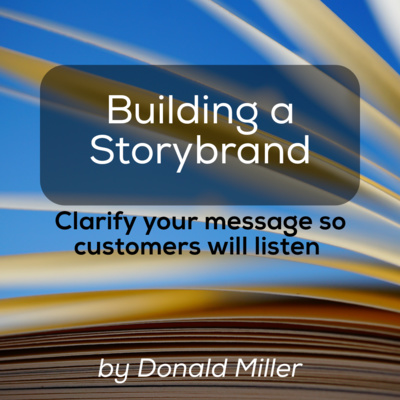
Building a Storybrand by Donald Miller
Stories are one of the most persuasive ways to convince someone of your argument, position yourself as an expert and to move someone along in a sales process. Some people are natural storytellers but the rest of us can learn the rules and structure to tell a compelling story. That is the essence of Building a Storybrand. Author Donald Miller sets forth a plan for you to create a story around your brand to allow you to bring a visitor to your website or a new subscriber to your mailing list along on a journey. This journey sets out your understanding of the problem the potential customer might be facing, your domain expertise and the steps that they will need take to solve their problem with you by their side. This is a simple but far from easy concept to implement. Luckily for you, we have laid out the steps in this episode.

Great Leaders Have No Rules by Kevin Kruse
There is a lot to be said about when to have rules, when to trust the team and when to provide guidelines. In this episode we cover the 10 principles author Kevin Kruse thinks you should consider when it comes to your leadership style. Some make perfect sense and you will wonder why you didn't think of them. And some, might take a bit of convincing for you to implement them. Either way, it is a great exercise to develop your leadership style or audit what you think you already know about leading your team.

12 Rules for Life: An Antidote to Chaos by Jordan Peterson
Peterson does not mince his words when it comes to delivering his rules for living a good life, a considered life. Considered by some to be a divisive figure, Jordan Peterson is unapologetic about what ills society in this book. If you or someone on your team is stuck in a rut, this episode could unlock some of the mystery about how it was arrived at. The rules also lay out the path from where you are to where you want to get to. Love him or hate him, these rules are undeniable.

Just Work by Kim Scott
All any of us want is to do good work. We want to solve interesting problems with good people. This is easier said than done for some people. Kim Scott puts forth 6 issues that can cause untold damage for some people while others think everything is rosy in the garden. Just Work covers what issues need to be addressed and how to address them. Everything from bias, unwanted physical contact to prejudice and bullying. Heavy topics but this book covers them with a really deft expert touch. The author draws on her own experiences to point out issues that some are not aware of but definitely should be aware of.
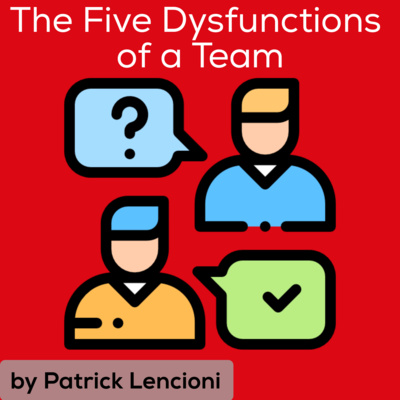
The 5 Dysfunctions of a Team by Patrick Lencioni
According to Patrick Lencioni there are 5 dysfunctions in a team that left unaddressed will lead to disaster. In this episode Kevin speaks to executive coach and leadership expert Maggie Perotin, founder of StairwayToLeadership.com about how she has used the lessons in this book in her own teams.

Surrounded by Idiots by Thomas Erikson
We have all had the feeling in our lives that we are surrounded by idiots - “If everyone did what I told them to do when I told them to do it we wouldn’t be in this mess”….does that sound familiar? It is extremely frustrating when you recognise that your plea’s, plans and persuasion techniques are falling on deaf ears. According to the author of ‘Surrounded by Idiots’ you may in fact be reading the room wrong. The chances are that you are not surrounded by idiots, you are surrounded by different personality types. In this book author Thomas Erikson puts forward the idea of there being 4 main personality types, categorised by colour. Red/dominant, Yellow/optimistic, Green/calm and Blue/realists. It is a fascinating look at how we can parse out people and their frame of reference for the world by these categories. In this episode we cover the 4 personality types in detail, how they might be perceived and how to deal with people you recognise as fitting into one of these categories.

Think Like a Monk by Jay Shetty
Going from pillar to post is a trap that a lot of us fall into. We are too busy working, looking after kids etc. to stop and think about the direction of your life. This episode addresses this 'busyness'. What is it all for? You need to find time to hit pause, take a breath, look around and decide if you are at least trending in the right direction in the areas of your life that are the most important to you.

Part 3: How to Win Friends and Influence People - Convince People of Your Argument

Part 2: How to Win Friends and Influence People - Make People Like You
Most of us have had the pleasure of either owning or encountering a friendly dog. As soon as they see us, they become ecstatic, jumping up and down, their tail wagging, panting with excitement. Their full attention is on us and we are the most interesting thing in the world to them for that moment. Carnegie believes that dogs inadvertently teach us a lot about making people like us.

Part 1: How to Win Friends and Influence People - Build Better Relationships
Dale Carnegie describes three techniques for building better relationships with your colleagues and customers. The first is to never criticise, complain or condemn. The second is to show honest and sincere appreciation. People perform better when they receive sincere praise. Thirdly, arouse an eager want. How will you see it from their point of view?...will it solve a problem for them? Will it make them look good?

Part 4: How to Win Friends and Influence People - How to be a Leader
Being a leader is about managing people without causing resentment. Carnegie recognized that this was a fine balancing act and came up with 9 tips for being an effective leader.

Deep Work by Cal Newport
In an age where distraction lies around every corner being able to perform 'deep work' is more valuable than ever. In his bestselling book 'Deep Work' Cal Newport puts forward 4 reasons why we should strive to do deep work and then provides rules for how we can achieve it. Newport says that 'Deep Work' is valuable, rare and meaningful.
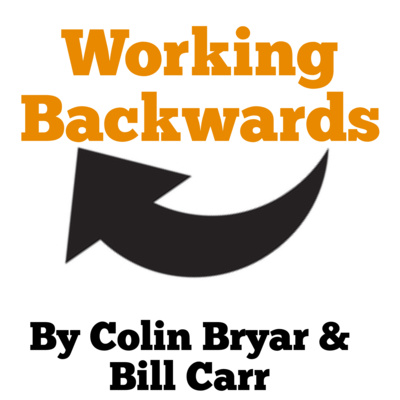
Working Backwards by Colin Bryar and Bill Carr
How does Amazon decide on what to build or do next? How do they ensure that technical dependencies don't get in the way of continuous growth? In this episode we cover Working Backwards written by Colin Bryar and Bill Carr, 2 senior employees who worked closely with Jeff Bezos during some of the most explosive growth Amazon has experienced to date. This episode covers strategies that can be used by companies of any size. For example, Jeff Bezos banned the use of PowerPoint presentations in meetings. Why? They are a waste of time. It is too easy to be swayed by a great presenter or to miss a great opportunity because of a poor presentation. So what do they do instead? Have a listen to find out why every Amazon meeting starts with 20 minutes of silence!

The Comfort Crisis by Michael Easter
Each and every one of us is wired to seek comfort and avoid discomfort. But maybe too much comfort is a bad thing. The number 0.004% is a significant one in this episode. That is approximately how long we have been exposed to our modern way of life. Humans have been around for 2.5 million years in one way or another and our modern way of life is about 100 years old. Author Michael Easter proposes that the level of comfort we have at our disposal is in fact causing us harm in a myriad of ways. We need to learn to get comfortable with discomfort.

Stillness is the Key by Ryan Holiday
The idea of quieting the mind, of stillness, is not new. In fact, Seneca, Marcus Aurelius, Cicero etc. understood it's importance centuries ago. If you've had a particularly hard time the last while, you might find some solace in this episode. You will find some simple techniques to help quiet your mind. These techniques generally involve stopping doing things rather than picking up more stuff for your to do list. If in the whirlwind of your mind, you seek inner peace, stillness is the key...ain't that the truth.
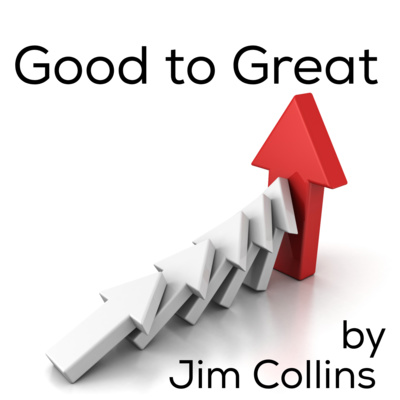
Good to Great by Jim Collins

Interview Series - Growing Professionals Kirsty Lewis
The School of Facilitation is a space for corporate and freelance practitioners to connect, learn and share. They host regular online and face to face gatherings, classes that will give you the skills to be an awesome trainer or facilitator and 5-day retreats where you can slow down, regroup your thoughts and reflect. They work with corporates to create in-house training teams, build the relevant skills and share how to transfer learning effectively. They support global companies create their global sales academies. They work with the client understanding their Sales strategy, what core sales capabilities and competencies they are aspiring to, design learning journeys and then the learning solutions.

Interview Series - Growing Professionals Aaron McKenna
Aaron is the UCD President's advisor on all commercial activities, tasked with helping them to grow new and existing income sources in line with their core mission as one of Europe's leading research-intensive universities. UCD is Ireland's largest university, with over €500m in revenues derived in the majority from non-state sources. Aaron is the former Managing Director of The Digital Marketing Institute (DMI). DMI has the most widely taught digital certification in the world. Aaron was with the business through a sustained period of exceptional growth and strategic development, including a successful transaction involving the highly regarded growth equity investor, Spectrum Equity.
Get on our mailing list here: https://usebecause.com/subscribe/
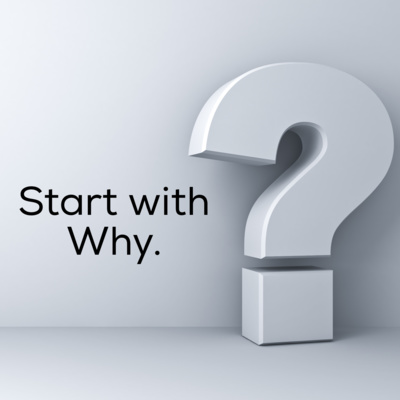
Start with Why by Simon Sinek
How are some companies able to create 'tribes' or raving fans around not just their individual products but their entire company? According to Simon Sinek, author of Start with Why, they focus on the fact that people do not buy what you do, they buy why you do it. After listening to this episode, you will understand what it is that makes Apple, well Apple. We touch on a possible reason why HMV, Blockbuster and KODAK fell to the competition when they had what seemed like an insurmountable lead. It may have come down to losing their 'Why'. Get on our mailing list at www.UseBecause.com/subscribe
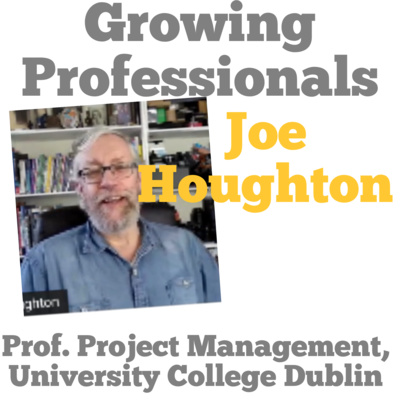
Interview Series - Growing Professionals Joe Houghton
As an educator or trainer, are you feeling exhausted and unproductive at times to teach via e-learning platforms like Zoom? In this episode, we discussed how learning and development (L&D) changes under COVID-19 and introduced various innovative L&D technology usage. If you are interested in enhancing interactivity with and engagement of audience in e-learning.
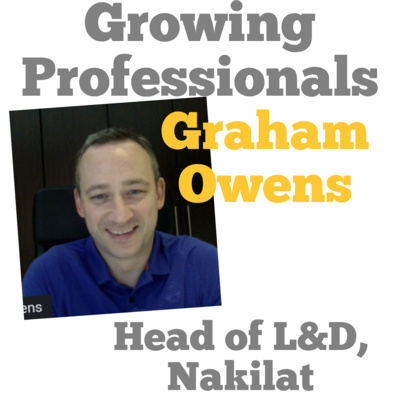
Interview series - Growing Professionals Graham Owens
In a career spanning the globe, Graham Owens is currently living in Qatar in the Middle East working in an L&D function within global operations in a Qatar gas – Pre-Covid they worked an 80/20 blended learning an approach which was working them, but most L&D always wanted a more online course.
Since Covid happened, they broke down some barriers by working online and had to pivot very quickly with the teams' help internally to ask how they would like to learn now. Bringing in external people to help in the business they produced lots of different online styles and switched the focus entirely online.
They have completed more courses than they had delivered on the previous year by 20%, which helped us deliver projects more efficiently.
Graham learnt how open people were to engage in online learning was surprising when we asked the head of the business to do more online now that conversation changed as soon as we had to change. This now helped us within the L&D to be more creative in how we had to deliver the training and doing things are different and fully engaged.
What's been learnt is that the time cost and effort to travel around the world to do 1 - 4 days of training, hotels entertainment is not necessary. We would like to see a 50/50 split going forward as the employees know the benefit of how powerful doing more of the workshops, learning.
We should see the holy grail of the blended approach which is very powerful to the employees and will see a more engaging the workforce that will help the people learn and grow further.
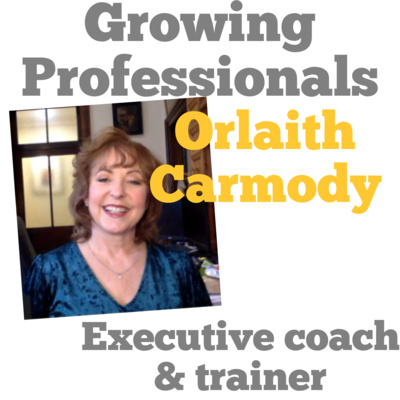
Interview series - Growing Professionals Orlaith Carmody
Orlaith is a Leadership, Talent and Development Director, Executive Coach (EMCC Senior Practitioner) and High-Performance Trainer with global experience. She runs her business with her partner/Husband Gavin Duffy and works with senior executives and organisations on personal and business growth.
Orlaith started her career as a journalist and worked with RTE until she had kids' and then pivoted her learning to do a masters in communication and then as an executive coach as she had already clocked up over 1,000 hours coaching clients adding education to her toolset.
Over the last few years, we have seen the trend in introducing online to part of the agenda with our clients, but we prefer the in-person approach which gives us more rapport with our clients that we engage with due to the pandemic like most companies like us we have had to go fully online and be creative how we have had to adapt how we now interact. eLearning can be great as an addition to the blended approach, but we still miss the traditional method of being with people in person.
Our whole communication style within organisations is now flattened. We need to use discussions, problem-solving and be there on purpose. The learning comes from within and finding a respectful way to help and adopt the way people want or need to learn.
How we create a buzz in the real world, or online the very first thing you can do is gain learners trust. Open up with a story or question and grab their attention so they can decide that this person is worth listening to and make sure they feel that they are being heard. Setting up the scene that this will be easy to follow but before we do this, we have to make sure that people are at ease so little things like having something social-first to get to know each other.
Our concentration is a lot less online, so you have to get movement back so taking regular breaks to get the energy back in so they are ready to learn more as we know it can be tough with lots of distractions around us like our phones etc.
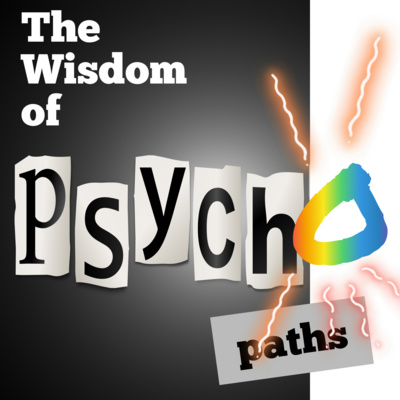
The Wisdom of Psychopaths by Kevin Dutton and Andy McNab
A psychopath is not necessarily a serial killer, your friendly neighbourhood neurosurgeon could possibly be a psychopath and believe it or not that is probably the best person for the job. There is so much to be learned from the characteristics of a psychopath that we can apply to our own lives and careers. In this podcast we delve into what those characteristics are and how to apply them. This episode covers two books that are essentially two sides of the same coin. Get new content on our mailing list here (www.usebecause.com/subscribe)

The Captain Class by Sam Walker
There is a wealth of information on what leadership looks like. But I really believe this book hits upon an aspect of leadership that you might not have considered. Author Sam Walker devised stringent criteria for choosing 16 top performing sports teams and asked himself a very definite question - 'What, if anything, do these teams have in common?'. His discoveries are insightful because they are unexpected but when you hear what he figured out about what real leaders are you cannot help but think 'Of course that's what a leader is!'.

The Subtle Art Of Not Giving a Fu*k by Mark Manson
If you are anti-participation medals or you are overwhelmed with trying to please everyone…. If you are tired of trying to ‘crush it’ everyday, then this is the episode for you. Mark Manson has a no holds barred book based on the realities of life.
Chapters with names such as ‘You are not Special’ and ‘You are always wrong’ will wake you up to the things you are spending your time on that perhaps you should not be spending your time on. The message is pretty clear - we all have a limited number f fu*cks to give in this short life of ours, so decide what really matters to you and get on with it. A profound book with a quirky title, have a listen and if you want to get more and go deeper, go to www.SkillDing.com
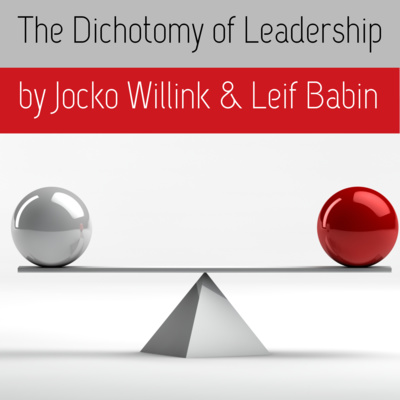
The Dichotomy of Leadership by Jocko Willink and Leif Babin
One of the most difficult things about leadership is finding the balance between opposing forces. When to mentor or when to let someone go. When to provide instruction and when to leave your team to figure out their own solutions. You can understand all of the 'rules' of leadership but what sets this book apart is the explanation of how these rules can come into conflict with each other. You will not find a solution for these dichotomies through reading books or listening to podcasts. You must take each situation where you find these dichotomies on it's own merits and figure out a way to success in real time. This episode explains what each of these leadership conflicts are and provides a map for finding a way through each of them.
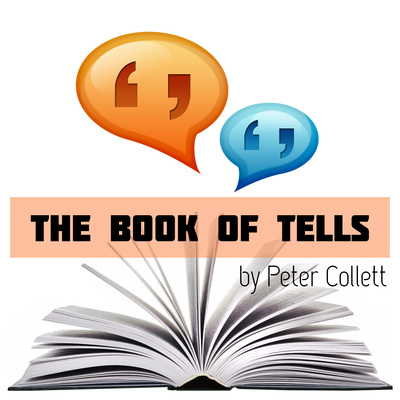
The Book of Tells by Peter Collett
The way you stand, sit, talk, shake hands, in fact the way you do EVERYTHING communicates something. In his book 'The Book of Tells', author Peter Collett moves through the different tells that we put out into the world. From submissive tells to dominant tells to how to spot a liar. This episode will make you a better leader, salesperson and communicator because you are going to understand not just what to look in someones body language for but how to interpret it.

Getting More by Stuart Diamond
You have heard a lot from us on books about negotiation. That's because it is a topic that lends itself to ever area of business and leadership. There is no right way to do it because it is so nuanced with a lot of moving parts. There is however, lots of wrong ways to do it. Being too aggressive, being too timid, being willing to split the difference. All of these are the wrong ways...or are they? Each and every negotiation you enter into means you are beginning at square 1. There are no shortcuts. Each and every negotiation contains its own opportunities and roadblocks. Knowing when to give in or when to hold your position is key. You must continue to deliberately practice the key components of negotiation. Remember to check out the free months access to the action log at UseBecause.com

The Chimp Paradox by Steve Peters
Do you wish you had reacted differently (or better) to a situation? It might not have been your fault. It might have been your chimp. We all have 3 parts to our brains, a human, a chimp and a computer brain. The human is logical and rational. That is who you wished had written the reply to that email you shouldn't have sent! But it was the chimp, the emotional, fly-off-the-handle no thought annoyance. But according the author Prof. Steve Peters, this chimp can be controlled and can actually be used to our advantage. In this episode, learn how to get the 3 parts of your brain to work together.